The majority of COVID-19 restrictions are set to be lifted in June, but there are some the government has yet to decide on.
All legal limits on social contact are due to be removed on 21 June, at the earliest, under Boris Johnson’s roadmap out of lockdown.
Nightclubs are due to reopen, restrictions on large events such as festivals are to be lifted, as are restrictions on the number of people at weddings – the government hopes.
However, there are a few measures the government is reviewing and are set to let the public know about on 14 June, a week before Step Four of the roadmap is implemented.
They are:
The one metre plus rule
While there will no longer be any stipulations about how many people you can meet indoors or outdoors, the government has yet to say if it will drop its social distancing guidelines entirely.
People are allowed to hug from 17 May but only within a group of six, or two households.
The government is allowing people to assess their own risk of being close to others, in that situation.
SAGE, the group that provides scientific advice to the government, has indicated social distancing will continue to be necessary to help keep transmission down.
In its latest meeting, on 8 April, it said: “As settings reopen, prevention measures will be important, e.g. limiting building occupancy, improving ventilation, prioritising outdoor seating, use of face coverings, physical distancing, adherence to quarantine, and encouraging vaccination.”
A SAGE sub-group, looking specifically at COVID-19 transmission in retail, hospitality and leisure, found data suggests hospitality is “associated with greater risk of transmission” than retail and leisure.
It found staff working in all three sectors were at a “significantly higher risk of infection” than customers, especially those working in restaurants, pubs and bars.
However, it said the overall number of cases associated with transmission in the three sectors “are relatively low” when compared with all other settings – so “transmission happens in more than one setting and activity”.
Ministers will look at this advice and make a decision on whether they can scrap the one metre plus rule altogether from 21 June.
Face masks
SAGE has said face coverings are one of the prevention measures that will be important.
Foreign Secretary Dominic Raab indicated at the beginning of May that face masks might continue to be in place beyond 21 June.
He said there may need to be “extra safeguards, caveats” to restrictions relaxing in June.
“It will particularly be around distancing, it could be around masks,” he told the BBC.
However, the requirement for secondary school pupils to wear masks will be scrapped from 17 May.
Scientists, unions and parents had urged the government to keep them, saying in an open letter that removing the need for face masks would “have consequences for the health” of children, their parents and the wider community.
Working from home
The government has said people should continue to work from home where they can until 21 June at the earliest.
Boris Johnson said he expects people will want to go back to work, however, many companies have already committed to hybrid working, while some have given up expensive office spaces in favour of working from home.
SAGE said data shows the majority of adult contacts are at work, while for children they are at school.
The group said: “The trajectory of the epidemic over the coming months is therefore likely to depend, to a large extent, on the scale of increase in workplace contacts.”
It also said that staff going into work while unwell – more likely if not provided with paid sick leave or financial compensation – “increases the risk of transmission in the environment, as well as the risk for customers and other staff members”.
The CoMix social contact survey, which has been running for the past year, found the highest level of adult contacts occurred in August 2020, when the work from home directive was lifted slightly.
This was then followed by a spike in COVID-19 cases in September.
Vaccine certificates
Domestic COVID certificated pilots have already started at sports matches and nightclubs as a way of reopening the economy.
They mean people who have been fully vaccinated, received a recent negative test or have natural immunity after recovering from COVID in the past six months can attend.
But the government has said they will not be needed for getting into shops or restaurants.
Some countries are stipulating that you need a “vaccine passport” to enter and the NHS app can be used to prove you have had a vaccine – but the government has not said if people will need that proof to enter the UK.
At the end of April, 6,000 people over two nights attended a warehouse club night in Liverpool without social distancing or face masks.
Earlier in April, 4,000 football fans were allowed at Wembley – which has a capacity of 90,000 – to watch the FA Cup semi-final between Leicester City and Southampton.
Anyone attending the trial events has had to prove they have had a negative lateral flow test result in the past 36 hours and has to take a laboratory PCR test five days after.
The government is set to announce whether the vaccine certificates will be used to host large-scale events after data from the pilots is gathered.
Major events
The government has said it will give organisers time to plan but has not confirmed whether all major events can go ahead from 21 June or not.
It will publish the review that determines whether major events, at full capacity, can go ahead from 21 June at the same time as the review on social distancing.
From 17 May, large indoor performances and sports events with a capacity of 1,000 people are allowed.
Outdoor performances and sporting events can have a maximum capacity of 4,000 people, or must only be half full – whichever is lower.
Bigger sport stadiums will be allowed 10,000 people, or can only be a quarter full, whichever is lower.
COVID-19 testing will be used to support the openings and if they go well, the expectation is this will continue past 21 June, possibly with more capacity.
Weddings
The government has said it hopes to allow weddings of more than 30 people from 21 June, but it will be down to the review published just before that.
SAGE’s COVID-19 transmission sub-group said: “The secondary attack rate [the probability an infected individual will transmit the disease to others] among contacts of confirmed cases from leisure and hospitality activities outside the home (not work or education) was highest among people exposed at private events and celebrations.”
SAGE said the data shows the likelihood of transmission increases with “the duration spent in that setting…and the frequency with which people visit that setting”.
The group also said: “Bringing together several risk factors increases the likelihood of transmission happening in a setting.”
This will all play a part in their advice on larger weddings.

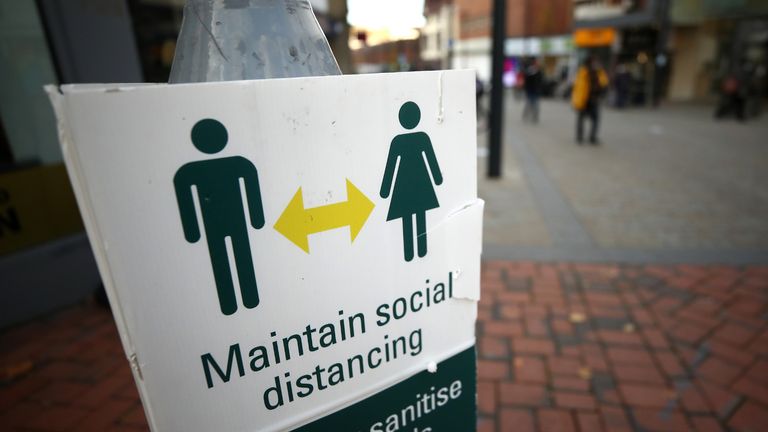
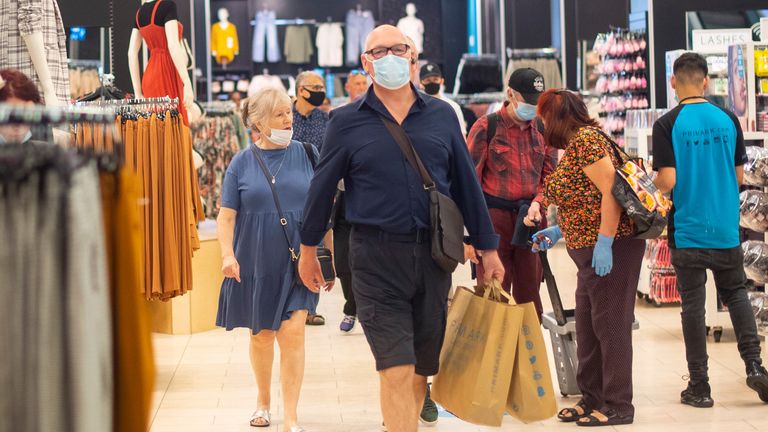

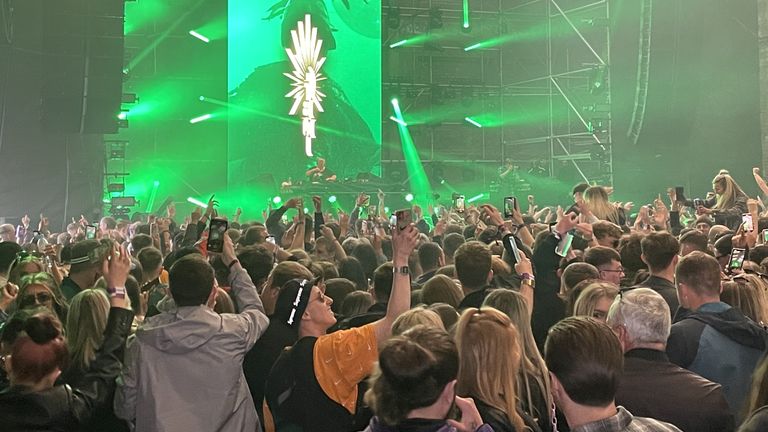
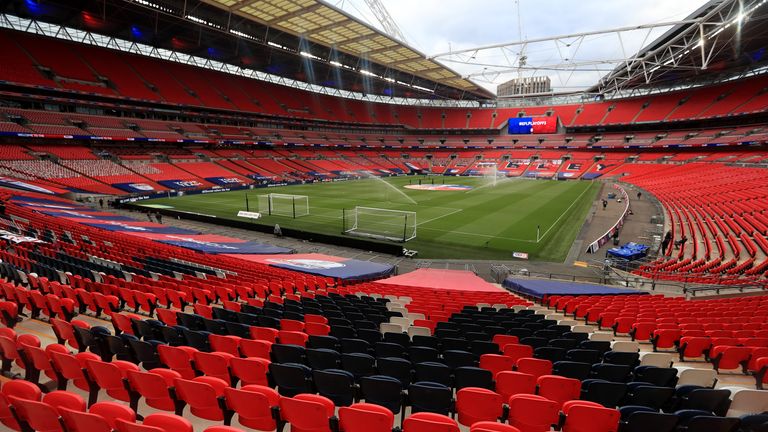
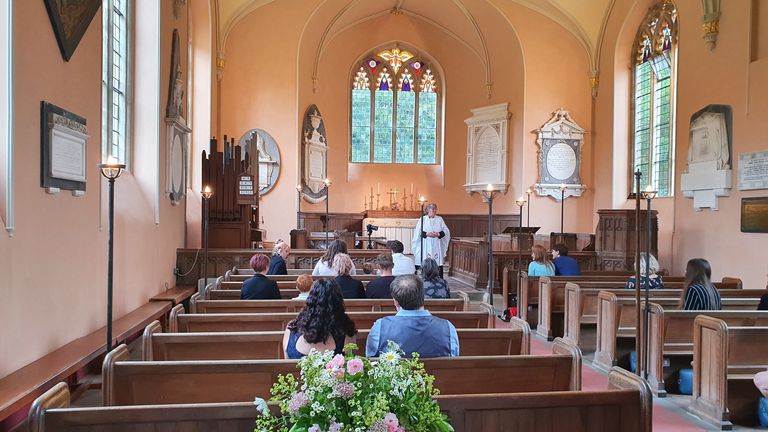


No comments:
Post a Comment
Note: only a member of this blog may post a comment.